Why juice, and how to choose the best home juicer
Why juice?
Fresh juice provides your body with a surge of super-nutrients on a cellular level – that means the nutrients go straight to the cells, without your body having to do the work of digesting the food first. This gives your body a break while still taking in the powerful enzymes, vitamins and mineral. It provides you with a boost of natural energy, boosts your immune system, helps your body flush out toxins, and makes it much easier to get your daily fruit and veggie servings in.
Choosing the best home juicer
All juicers are not created equal. There are so many options to choose from, and if you’re going to make such an investment for your health, you want to make sure you’re getting the best value for your money.
Let’s take a look at the types of juicers on the market:
Centrifugal Juicers
Centrifugal juicers are definitely the easiest to find. Most department stores carry them. These juicers are also the most affordable. They stand in an upright, vertical design. Inside of a centrifugal juicer, there is a mesh chamber with razor sharp teeth on the bottom. When turned on, this chamber spins at rapid speeds. When the fruit/vegetables are inserted into the juicer, the razor sharp teeth pulverize them, and the shreds are then flung and caught by the mesh walls. The juice goes through the mesh, and the pulp is left behind – similar to the spin cycle of a washer machine.
Pros: Juices fast. Affordable. Easy to use and easy to clean. Uses minimal counter space. Has large chutes, so you may not have to cut up foods before juicing.
Cons: The rapid spinning of the chamber causing friction and, therefore, heat – oxidizing faster and destroying some beneficial enzymes. Does not juice leafy greens well. Produces foam in juice. Noisy.
My favorite centrifugal juicer: The Breville JE98XL Juice Fountain Plus 850-Watt Juice Extractor*
Masticating Juicers
Most masticating juicers stand in a horizontal design. They are pricier than centrifugal juicers, but do provide more benefits to make up for it. The extension tube of a masticating juicer holds a single auger, similar in appearance to a screw, that slowly squeezes and crushes the fruits/vegetables. The juice is drained through a screen within the tube, and the dry pulp is exited through the end.
Pros: Does not produce heat. Provides more nutritional value in the end product than centrifugal juicers. Produces very little foam. Juices leafy greens well. Produces more juice, less waste than centrifugal juicers. Easy to use, easy to clean. Quiet. Can also be used to make pasta, sauces, nut butters, and baby food.
Cons: Takes a little longer to produce juice. Pricier. Has a smaller chute, so you’ll likely have to cut/slice fruits and vegetables before juicing.
My favorite masticating juicer: The Omega NC900HDC Juicer Extractor and Nutrition Center*

Twin Gear Juicers (aka Triturating)
Twin gear juicers, in similarity to masticating juicers, also produce juice slowly without producing heat. In difference, rather than having one slowly spinning auger that crushes fruit/vegetables, a twin gear juicer has two gears that interlock, slowly rotating inward with each other to crush anything that gets in between them. They are more expensive than centrifugal and masticating juicers, and are considered by many to be the best home juicers on the market.
Pros: Does not produce heat. Works at slow speed to prevent oxidation. Provides even more nutritional value. Produces very dry pulp/extracts very high yield of juice. Juices leafy greens very well. Does not produce foam. Like masticating juicers, can also be used to make pasta, sauces, nut butters, and baby food.
Cons: Larger price tag. Juices slowly. Has small chute, so you will likely have to cut/slice fruits and vegetables before juicing. Pressure often needs to be applied to push the fruits/vegetables down the chute and through the gears. Difficult to clean and assemble. Heavy. Does not juice citrus fruits well.
My favorite twin gear juicer: The Tribest Green Star Elite GSE-5000 Jumbo Twin Gear Cold Press Juice Extractor*
Hydraulic Press Juicers
The Norwalk hydraulic press juicer is undoubtably the top of the line. Also, undoubtably, the most expensive. Juicing with this type of machine involves a two-step process: first, the fruits/vegetables go through a triturating process in which they are broken down to a mashy, applesauce-like consistency. The “mash” is emptied from the triturator into a cheesecloth bag. The second step involves laying that filled cheesecloth bag on the steel plate of the machine, where it will be squished with extreme pressure to remove all of the juice and nutrients from within it. The two step process definitely makes juicing with the hydraulic press more complicated and time-consuming than other juicers, which, along with the price-tag, is why it’s more often used commercially, and less often used as a home juicer. The hydraulic juicer does, however, produce the absolute most nutrient-rich juice.
Pros: The ultimate juicer. Does not produce any heat. Produces the most nutrients/highest quality juice. Produces the most juice/driest pulp. No foam. Maximum shelf life/slow oxidation (will last for about 3 days). Can also be used to make sauces, nut butters, and baby food.
Cons: Very expensive (the Norwalk costs upwards of $2,000). Time consuming. Can be very messy. Large, bulky and heavy.
Choosing which juicer is right for you:
When choosing from the above types of juicers, weigh the pros and cons and keep your needs in mind. Are you always busy, and in need of a machine that will simply produce fresh juice in the shortest amount of time? If your answer is yes, and producing an end product with the highest nutritional/enzyme value is not as important to you, then maybe a centrifugal juicer is your best choice. Just keep in mind that centrifugal juicers do not juice leafy greens well.
If you are willing to take a few extra minutes to produce fresh juice that is even more nutritious and enzyme packed, enjoy juicing leafy greens, want more juice and less waste, and want a machine that will also work to make pasta, sauces, nut butters and baby food, I suggest going with a masticating or twin gear juicer. As mentioned above, I own the Omega J8006 masticating juicer, and I absolutely love it. I first owned a centrifugal juicer, and after a year or so, graduated up to the Omega.
If price is no object for you, and you are willing to spend what ever it takes to produce the healthiest, most nutritious juice, with the highest yield, then maybe the Norwalk Hydraulic Press is the choice you would most enjoy.
*As an Amazon Associate I earn from qualifying purchases.
*Some of the links in the post above are “affiliate links.” This means if you click on the link and purchase the item, I will receive an affiliate commission. Regardless, I only recommend products or services that I believe will add value to my readers.

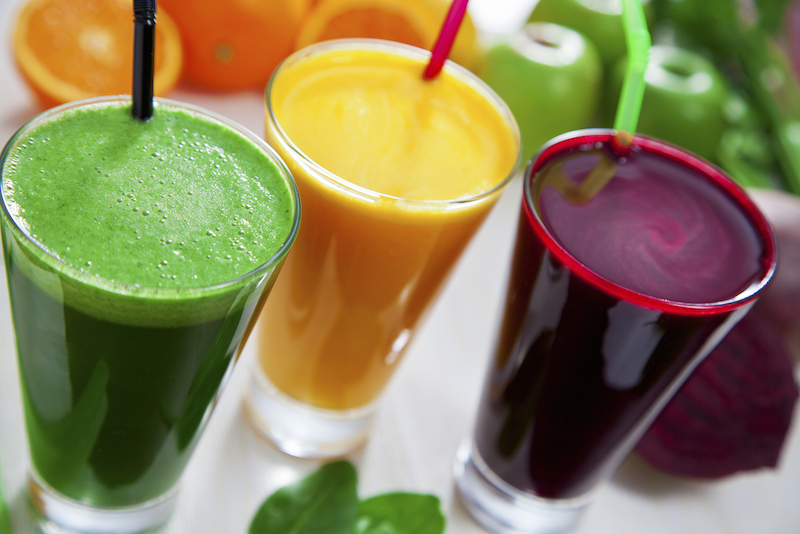
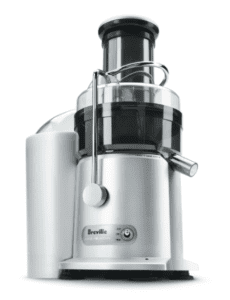
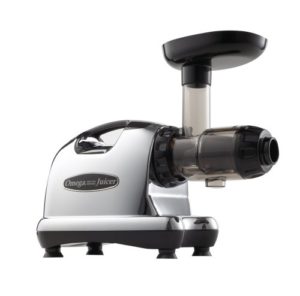
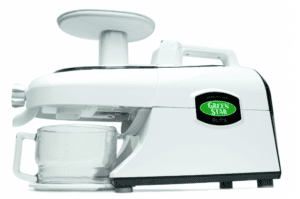
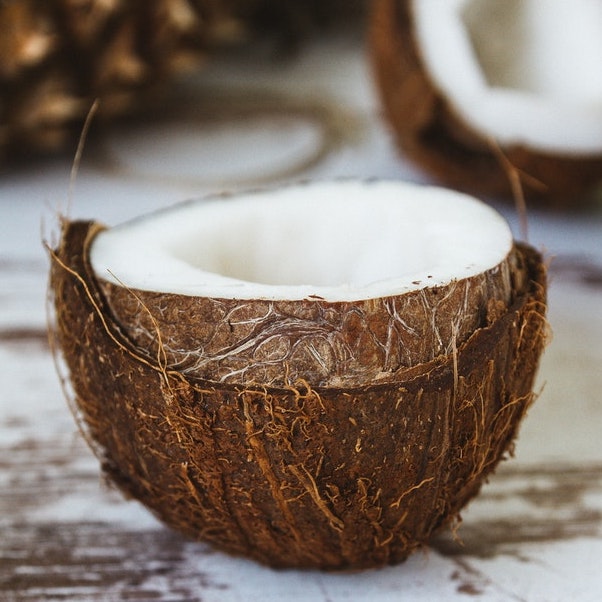

just trying to find out which is the best juicer without reading about them all… any results.. good normally priced?And what You Should Know Before Buying a Juicer?
Hi Kevin,
In terms of good priced, I would go with a centrifugal or masticating juicer – they are priced lower than the other options.
As for what you should know before buying a juicer:
1) Have an idea of what you want to juice. Centrifugal juicers are great for juicing oranges, apples, carrots, cucumbers, etc., but not great for juicing leafy greens like kale, spinach, wheat grass, etc. If you want green juice, I recommend getting a masticating juicer, which is great at juicing all of the above.
2) How much does the quality of the juice mean to you? Masticating juicers are known to produce a higher quality of juice than Centrifugal juicers.
3) How much time do you have to spend juicing? Centrifugal juicers work faster and you don’t have to spend as much time prepping. Masticating juicers work at a slower rate, and require a little more prep time for slicing, but in my opinion, the cleanup time is faster as the pulp is much dryer.
If you decide to go with Centrifugal, I would recommend the Breville JE98XL, and if you decide to go with Masticating, I recommend the Omega J8006. I’ve owned the Omega J8006 for about 6 years and love it.